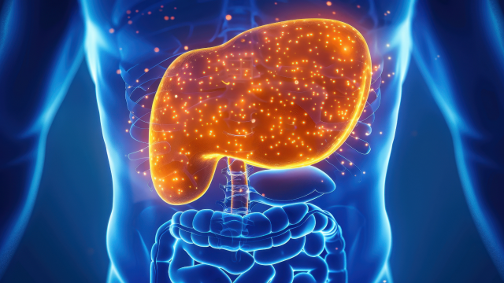FDA Grants Accelerated Approval to Gilead’s Livdelzi for the Treatment of Primary Biliary Cholangitis
August 19, 2024
Source: drugdu
 524
524
By Don Tracy, Associate Editor
Approval of Livdelzi is based on results from the Phase III RESPONSE study, which demonstrated improved key biochemical markers and reduced pruritus.
 The FDA has granted accelerated approval to Livdelzi (seladelpar), Gilead’s treatment for primary biliary cholangitis (PBC) in adults who either have an inadequate response to ursodeoxycholic acid (UDCA) or cannot tolerate it. According to the company, the approval was based on positive results from the Phase III RESPONSE study, where Livdelzi significantly improved key biochemical markers and reduced pruritus, a debilitating symptom of PBC. Accelerated approval was based on a reduction of ALP.1
The FDA has granted accelerated approval to Livdelzi (seladelpar), Gilead’s treatment for primary biliary cholangitis (PBC) in adults who either have an inadequate response to ursodeoxycholic acid (UDCA) or cannot tolerate it. According to the company, the approval was based on positive results from the Phase III RESPONSE study, where Livdelzi significantly improved key biochemical markers and reduced pruritus, a debilitating symptom of PBC. Accelerated approval was based on a reduction of ALP.1
“More people are being diagnosed with PBC, impacting people of varied ages, gender, race and ethnicity. Those living with PBC share common symptoms, including incessant itching or skin-crawling sensations, as well as debilitating fatigue that is made worse by the itching at night,” said Carol Roberts, president, The PBCers Organization, in a press release. “The availability of a new treatment option that can help reduce this intense itching while also improving biomarkers of active liver disease is a milestone for our community.”
The RESPONSE study in combination with other studies, such as the long-term, open label ASSURE study and prior earlier phase studies, represented approximately 500 patients with PBC. The primary endpoint of the study was composite biochemical response at one year versus placebo. Change from baseline pruritus score at six months was a key secondary endpoint.
Results found that 25% of participants achieved normalization of alkaline phosphatase (ALP), a key predictor of liver health, compared to none in the placebo group. Additionally, the primary endpoint was achieved, with 62% of participants taking Livdelzi reporting composite biochemical response at one year compared to 20% in the placebo group. As a result, Livdelzi demonstrated a statistically significant reduction in pruritus compared with placebo.
Common adverse events (AEs) related to Livdelzi included headache, abdominal pain, nausea, abdominal distension (swelling) and dizziness. According to the company, there were no treatment related serious adverse events (SAEs), as determined by the study investigators. However, Gilead warned that fractures have occurred in 4% of patients treated with Livdelzi compared to no placebo-treated patients. Additionally, patients should avoid Livdelzi if they have complete biliary obstruction.1
According to The National Institute of Diabetes and Digestive and Kidney Diseases, PBC is more common in women, with an average diagnosis age of 60 years old. According to researchers, about 58 out of every 100,000 women in the United States and about 15 out of every 100,000 men in the United States were living with PBC in 2014. It is also more common in white people and those with a family history of the condition.2
Medscape states that 25% of patients with PBC are incidentally diagnosed during a routine blood evaluation. Common symptoms include fatigue, pruritis, and right upper quadrant discomfort. As the disease advances, signs of hepatomegaly, hyperpigmentation, splenomegaly, jaundice, xanthomas and xanthelasmas, sicca syndrome, and Kayser-Fleischer rings can be found. Additionally, the antimitochondrial antibodies can be found in 90-95% of patients with PBC, and they have a specificity of 98% for this disease.3
“People living with PBC have been waiting for treatment advancements for many years. Today’s approval of Livdelzi, with its distinct profile, provides them with an important new option,” said Daniel O’Day, chairman, CEO, Gilead Sciences, in the press release. “We look forward to leveraging Gilead’s long-standing expertise in liver disease to bring this promising new treatment to all those who could benefit.”
Read more on
- Gan & Lee Pharmaceuticals’ new PROTAC drug GLR2037 tablets have been approved for clinical trials to enter the field of prostate cancer treatment March 3, 2026
- AideaPharmaceuticals plans to raise no more than 1.277 billion yuan through a private placement to focus on the global clinical development of innovative HIV drugs March 3, 2026
- Giant Exits! Its Star Business Acquired March 3, 2026
- Focusing on cardiovascular and cerebrovascular diseases! OpenMediLead Medical Intelligence Dual Engines Launch Internal Testing, Connecting Drug Development and Clinical Diagnosis in a Closed Loop March 3, 2026
- Innovent Biologics Announces Approval of New Indication for BTK Inhibitor “Pitubrutinib” in China March 3, 2026
your submission has already been received.
OK
Subscribe
Please enter a valid Email address!
Submit
The most relevant industry news & insight will be sent to you every two weeks.



